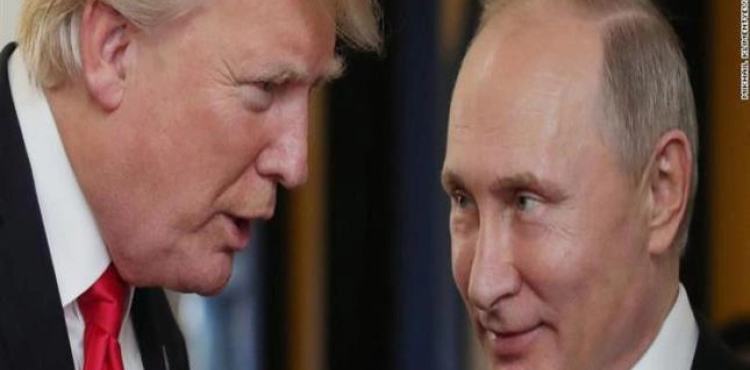US President Donald Trump pledged his country would surpass Russia in spending on missile programs in the absence of a new international agreement after it pulled out of a key Cold War treaty.
Trump´s comments came in a State of the Union address amid fears of an arms race between the United States and Russia, hours after Moscow pledged to develop two new missile systems in the next two years.
Trump announced Friday that Washington would begin the process of withdrawing from the 1987 Intermediate-Range Treaty on Nuclear Missiles (IFF) in six months, citing Moscow´s continuing violation of the treaty by deploying a new missile system and ignoring Washington´s repeated complaints.
"During my administration, we will never apologize for putting America´s interests first," Trump told lawmakers in the Senate.
"We are likely to negotiate for a different agreement by adding China and others, or maybe we can not ... in which case we will outweigh the spending and development of all the others by a great deal," he said.
The United States is monitoring the growing capabilities of China´s non-signatories to the nuclear missile treaty, and US officials say 95 percent of China´s ballistic missiles would be in violation of the nuclear missile treaty if China were a party.
The treaty provides for the prevention of the use of missiles with ranges ranging from 500 to 5,500 kilometers. It put an end to a crisis in the 1980s that arose from the deployment of Soviet-made SS-20s with nuclear warheads capable of targeting Western capitals. It was signed by Ronald Reagan and Soviet leader Mikhail Gorbachev.
In response to the US withdrawal, Russian President Vladimir Putin announced on Saturday Moscow´s withdrawal from the treaty and start working on the development of new types of weapons that violate the Convention.
On Tuesday, Defense Minister Sergei Schweigo announced that his country would develop two new missile systems in the next two years after Washington and Moscow abandoned a major arms control treaty.
"In 2019-2020, we have to develop a land-based model from the Sea-Caliper system equipped with a long-range long-range missile that has shown good results in Syria," he said.
"During the same period, we also have to develop a system of long-range land-based missiles that is faster than sound," he said.
Lithuania and Latvia, fearing the threat of their giant neighbor Russia, backed the US withdrawal. But Latvia has expressed hope that Washington and Moscow will work with other countries to reach a new agreement.
"I will defend ... even if it takes a very long time, even if it will sometimes be complicated and very frustrating ... it would be good to try to find a way for a collective agreement to reduce armaments in this area," Latvian Foreign Minister Edgarz Rinkevich told AFP.
"It needs to include more than the United States and Russia because there are more countries that can produce such weapons than they were 30 years ago," he said in an interview in Washington, where a 79-nation meeting is to discuss the war on the Islamic state.
Latvia, like other NATO nations, has backed the United States, which accuses Russia of former President Barack Obama of violating the treaty by deploying its new Missile Organization 9M 729.
Rinkevich, however, played down the immediate impact of the collapse of the medium-range nuclear missile treaty, saying Russia was already stepping up its military moves since Moscow annexed the Crimea in 2014.
He acknowledged that any agreement in the future would probably not be comprehensive, such as the medium-range nuclear missile treaty.
"The hard answer is that now I can not see a great desire to do anything in this direction, almost everyone."












